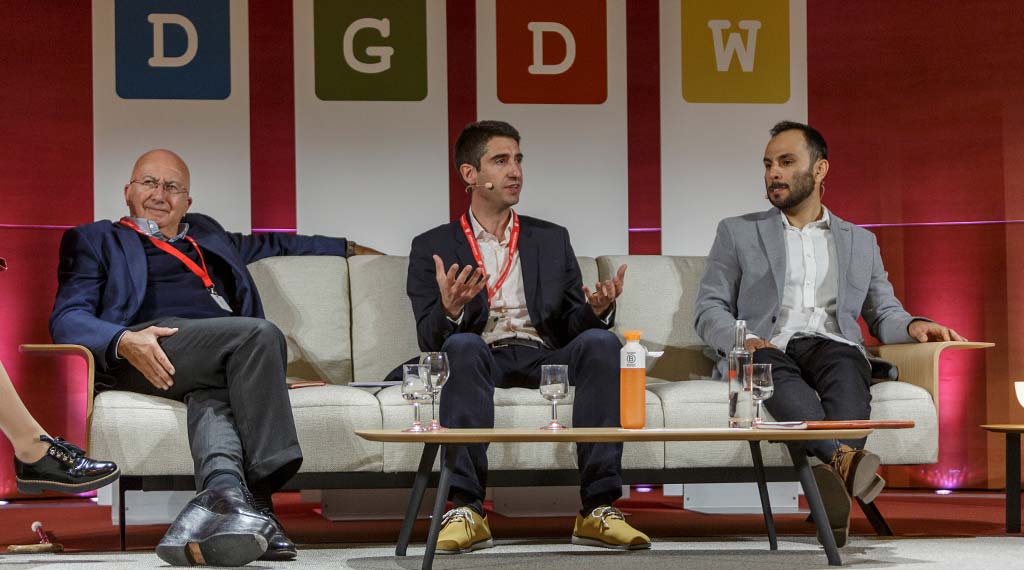Stories
Expanding the definition of responsible business
Annual Doing Good Doing Well conference looks at climate, purpose, food supply and more
March 6, 2019

For years, responsible business focused on reducing the negative social and environmental impacts of companies. But as IESE’s Doing Good Doing Well conference this week showed, the definition of responsible business is expanding to encompass an increasing number of issues.
Doing Good Doing Well, a student-organized conference that is one of Europe’s biggest events on responsible business, was held March 4-5 on IESE’s Barcelona campus. It brought together business, social and academic leaders to discuss everything from how businesses align with climate change to creating a sustainable economy to feeding 10 billion people.
What was clear is that the notion that companies’ sole purpose should be to generate profits no longer holds true. “The idea that the purpose of a business today is simply about maximizing shareholder value is very old fashioned, it’s out of date. Why? Because the rules of the game have changed so fundamentally,” said David Grayson of Cranfield School of Management, speaking on a panel titled Finding Purpose in Any Industry. The world has changed due to the rise of globalization, privatization and large global brands, he said.
Businesses across the globe are starting to realize that it’s not enough to reduce negative social and environmental impacts. They have to demonstrate the positive impact they have on the world. And while it’s up to each business to define its own purpose, that purpose should be “inspiring, authentic and explain how the organization creates value for society.”
Creating a Common Goal
Identifying a clear purpose gives companies a sense of meaning and relevance that translates into a shared commitment toward a common goal, added Pablo Sanchez of B Lab.
Purpose goes beyond the boundaries of the organization, moving up and down the value chain to affect all stakeholders, including customers, suppliers and others, he said. The central goal of companies should be to create social value by respecting social justice.
Nash Billimoria, a Barcelona-based consultant and executive coach, cited Colin Mayer’s book, Prosperity, which describes the purpose of business as to create profitable solutions that fulfill the needs of people and society. Finding purpose acts as a bridge that connects people to the activities of the company in a meaningful way, he said. If this bond doesn’t exist, companies cannot expect to create exceptional products and services.
It is important to distinguish a company’s purpose from its objectives, he said. A company’s objectives relate to its operational goals, while its purpose should be linked with the question “Why is this important?”
“The reason we’re having this conversation about purpose in the first place is that we acknowledge and accept that something is fundamentally broken,” said Billimoria. “There is something that’s not working, the negative externalities of business are no longer acceptable to us.”


